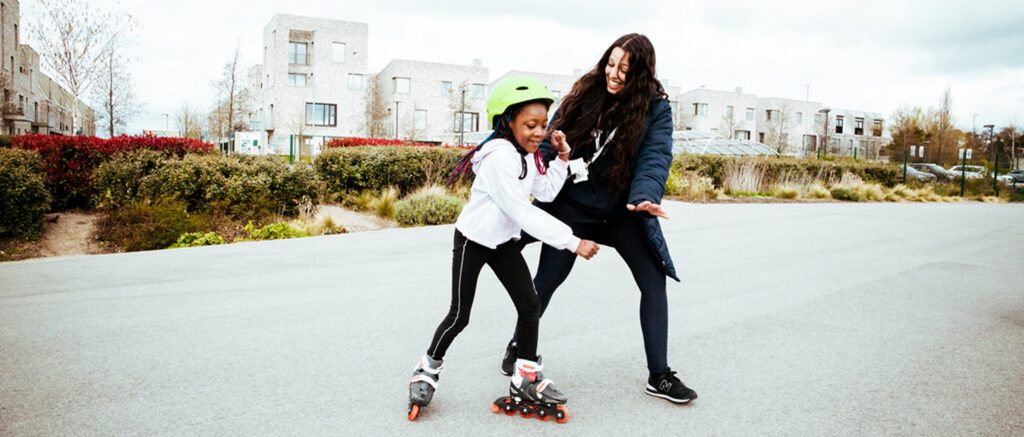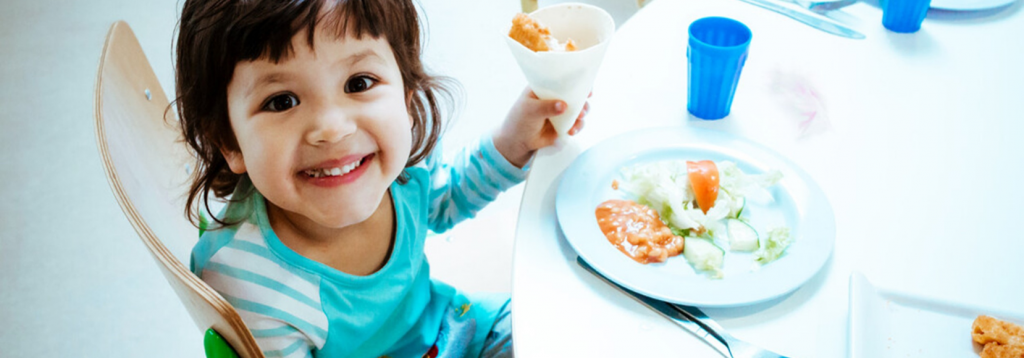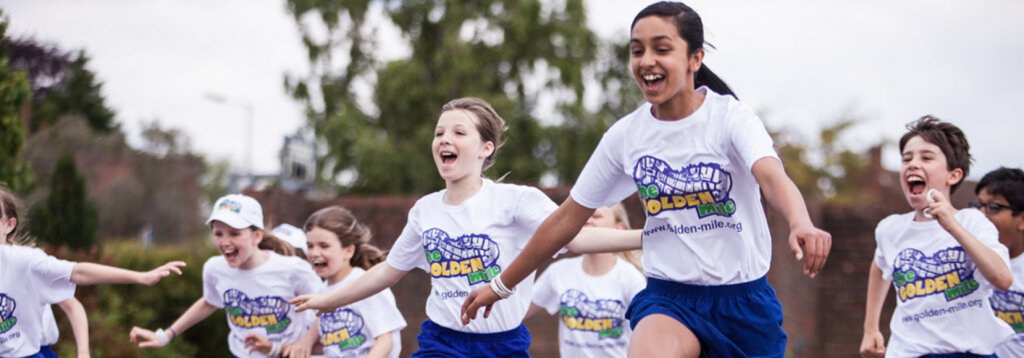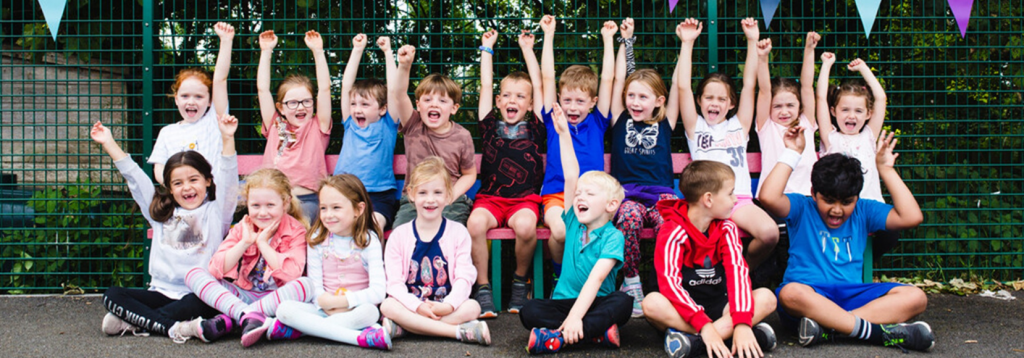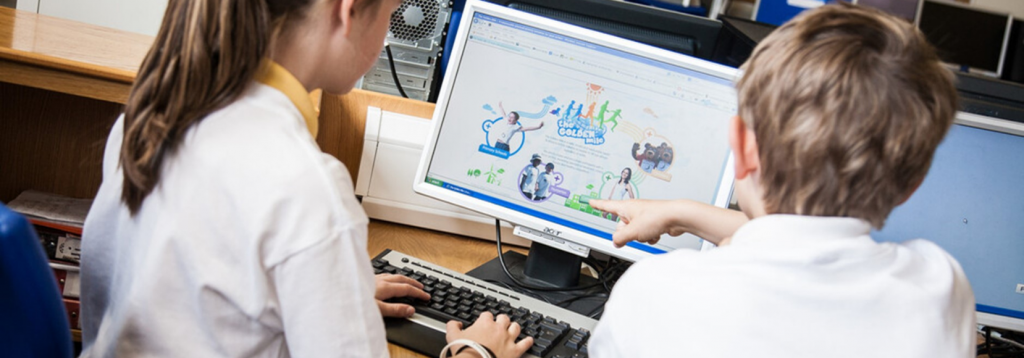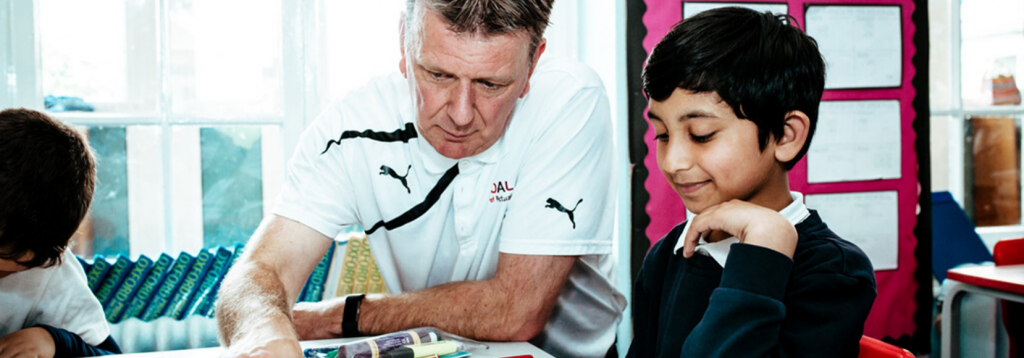Good Habits for Kids: Creating Healthy Lifestyle Habits at a Young Age
The habits we teach our children form the foundation of who they will grow up to be as adults.
From preventing health conditions such as obesity and diabetes to improved mental health, increased confidence, better social skills, resilience and a more positive outlook, a healthy lifestyle will give a child a strong foundation of physical and mental benefits. This will set them up for the rest of their life.
This article will help you to set up good habits for your child, including advice on:
Be a role model
Parents and family members play an essential role in demonstrating positive behaviours and reinforcing healthy habits for kids.
Children learn how to be and behave by watching and listening. By watching how we communicate, eat, spend, listen to and treat others, children form their ideas of how they should conduct themselves. Children tend to do what you do and not what you say, so it’s important to set a positive example as much as possible.
Obviously, we all encounter challenging periods induced by stress, ill-health or trauma, but how we respond in those more difficult moments can be an opportunity to show defiance, resilience or positivity in the face of adversity.
Do it now, not later
Research suggests that it can take anywhere from 18 to 254 days to break a habit and this can vary depending on the habit and the individual.
Start early. The sooner you get started, the faster you can establish good habit cycles. It can be daunting to change or implement new habits but the long-term benefits will outweigh the short-term inconvenience. Also, children are more malleable than adults so habits, in many cases, are easier to set up and happen in less time – you just have to commit and follow through.
Remind yourself of this whenever you experience doubts and stay resolute and committed to your cause.
How can I help my child form healthy habits?
Teaching children good habits can seem like a long, hard and ongoing commitment. Clear results may not be not fast or easy to see.
Starting healthy habits when children are young is particularly important because of the cognitive behaviour that takes place during this stage. The cognitive behaviour model says that the way that we think about events in our life, influences the way we feel about them and therefore drives behaviour. In brief: thinking about why we do things so that we make informed choices about what we do.
Toddlers and young children thrive off routine and expect things to be done in a particular way. As children get older they become abstract thinkers and start to question the way things are done. If the habit becomes ingrained before that time, they are more likely to keep doing it in later life.
However, aim to avoid persistent criticism or nagging. Teaching and demonstrating behaviours in a positive way will be more effective in influencing child behaviour.
A healthy diet
Our relationship with healthy food begins in childhood.
Exposing children to a range of healthy foods, flavours and textures will keep them in good health, and make them more accepting of a wider variety of foods as they grow up. It’s normal for children to go through fussy phases but don’t be tempted to reduce the range of foods to accommodate their picky tastes or fads. Continue to offer nutritious, healthy meals containing the main food groups – fruit and vegetables, dairy, protein, healthy fats and wholegrain and starchy foods such as bread, rice and pasta.
Field to fork understanding
As parents, we have a responsibility to close the gap between the food on our children’s plates and where it came from.
Giving children an opportunity to be hands-on with produce to see how it grows will instil a solid understanding of where food comes from, an appreciation of how it is produced and a reluctance to waste. It also helps to explain what is ‘good’ food and what is ‘bad’ food so they can make informed choices as they get older.
Window boxes, seed trays, eggshells, milk cartons and even old guttering can be used as containers for seed sowing. Try growing something simple such as herbs, salad leaves or strawberries or visit a pick-your-own farm to harvest fruits and vegetables from the source. You could even try pointing at things in the supermarket and describing where they come from, how they’re made and their relative ‘goodness’.
Table manners
Eating as a family at the table is a bonding experience. Away from the distractions of TVs, tablets or phones, parents and children can debrief on the experiences of their day.
Children watch their parents – both what and how they eat – so set an example of good manners and you will reap the rewards.
Why not make mealtimes more fun by laying out sharing bowls of grated cheese, dips, a basket of bread or sauces? This gets kids involved and allows children to modify their own meals and have some ownership over what they eat.
Healthy snacks
Children should learn to eat for nutrition and fuel, rather than eating due to boredom, comfort or stress.
Excessive grazing or relentless demands for snacks can make it easy to turn to convenience foods, which typically have high sugar or fat content and aren’t nutritionally balanced.
Plan a range of healthy snacks which will keep kids fuller for longer and provide essential vitamins and nutrients – not just a sugar high. A handful of nuts, an oatcake with hummus, carrot sticks, raisins, dried apricots or breadsticks are better than biscuits or crisps.
Also, creating a cycle of demand for junk food will make it less of a treat and more of an expectation.
Avoid food-based rewards
It can be tempting to incentivise behaviour with sweets or treats because it is so effective. However, the problem with doing this is that children begin to associate unhealthy food with positive feelings.
Try offering stickers, hair slides, books or notepads and pens instead.
Drinks and caffeine
Caffeine is a stimulant that can inhibit sleep and cause your child to stay awake longer. While we associate caffeine with more adult drinks such as coffee, it is present in many soft drinks, including energy drinks and fizzy drinks – the kind of drinks that have no nutritional value.
As well as increasing the likelihood of dental cavities, calcium deficiency and erosion of tooth enamel, caffeine functions as a diuretic, which can contribute to dehydration. It can also make heart palpitations or nervous disorders worse, which makes it harder to get a good night’s sleep.
Encourage your child to drink water, milk and watered-down fruit juice instead of sugary fizzy drinks. This will help children develop good habits at an early age. The sooner children get accustomed to sweet and fizzy drinks, the less appealing water can seem, which poses a risk for hydration and can cause problems for dental and weight-related health issues.
Importance of physical activity
Physically active children are more likely to become active adults.
Getting kids interested in physical activities from a young age will see them more likely to factor exercise into their life as they grow up.
Lead by example
Parents who partake in physical activities are demonstrating a healthy lifestyle and setting themselves up as positive role models. By demonstrating your commitment to fitness you are showing that it’s an important part of daily life.
Talk to your children about why we should make time to exercise. Highlight the positive health benefits, for example, keeping your body and mind healthy, working towards a goal or meeting with friends.
Do you do any team sports? Invite them to watch you play in a football match or compete in a cycle ride to demonstrate the wider participation in sport. This teaches them first-hand the social and collaborative aspects of team sports.
Better still, encourage them to participate in your hobby. If you love swimming, take them for a fun family splash session, if you enjoy yoga, allow them to join you in your practice, or if you’re a keen walker, plan a route that is child-friendly so your children can come along too.
And remember, fitness doesn’t have to be about ‘sport’. Physical activities of all sorts support mental and physical fitness: walking, dancing, cleaning the house, martial arts, frisbee, gymnastics, cycling, gardening.
Join a sport club
Many school children gravitate towards team sports as they enjoy being around their peers and making new friends.
Sports clubs provide an opportunity for children to learn new skills, develop relationships and learn leadership, teamwork, problem-solving, responsibility, self-discipline and a sense of initiative.
This is particularly good for shy children, as group sporting activities encourage them to come out of their shells and can boost confidence as well as communication skills and help them make friends.
Most schools offer wraparound care in the form of breakfast and after-school clubs and this is a great way for your child to sample new activities, especially for families who might find it harder to access sports clubs outside of school.
Use your legs!
It can be time-saving and convenient to hop in the car or bus whenever you need to post a letter, pop to the shops or get to school. But every time you do, you’re reducing the opportunity to exercise.
If the journey is realistically within walking distance, make an effort to walk there with the children. Remember, a short walk for an adult will feel longer for a child – their legs are only little!
Take a checklist for spotting things along the way as this can help to make walking more fun as well as improve their reading skills.
Be committed to getting outdoors, no matter what the weather does. Demonstrating to your child that playing outdoors isn’t just for sunny days will break down the barrier to getting outdoors and teach them to embrace each day.
Be active together
Whether it’s a game of frisbee, a family bike ride or a beach walk, there are many ways to be active with your children, regardless of the outdoor space you have access to at home.
Commit time to an active family slot and together compile a list of activities you could try. From a treasure hunt in the garden, an assault course around the woods or a game of catch in the park, there’s a myriad of simple ways to form a bonding healthy habit.
Time management and routine
Lack of routine can be stressful for children.
Predictable routines around getting ready for school, bath time, mealtimes, bedtime and playtime can help to set and manage expectations and behaviours in children.
Routines can create a calmer household and offer independence to children as they begin to do things for themselves rather than being told what to do. For this reason, they’re less likely to rebel.
That said, showing spontaneity and creativity in between these set anchors in the day can help to demonstrate the importance of flexibility.
Regular and structured bedtime routines
This is the cornerstone of a good night’s sleep and vital for assisting your child to wind down before bed.
A warm bath followed by putting on pyjamas, brushing teeth and going to the toilet prepares the child for bed.
Dimmed lights help your child’s body to produce melatonin, the sleep hormone that aids the rhythm of their natural body clock.
As part of your daily practice, ensure the room is quiet and enjoy a story together or allow them some quiet time to read their own book.
15 to 20 minutes later, it’s time to say goodnight and lights out.
Repetition is key – make sure the same processes happen at the same time every night, even at weekends.
Avoid physical activity and screens an hour before bed (see more below).
Managing a schedule
Being organised and managing a schedule is a great way to instil positive habits in young children. Define the things they must do and when, and show them what they can choose and when.
By understanding that school times are set and must be adhered to, children learn responsibility.
By getting into the simple habit of packing sports kits the night before an after-school club, children are being organised and prepared.
Punctuality is a vital skill and needs to be taught early. Punctual children are more responsible, have higher confidence and are ready to be focused at school, which is key to performing well.
Relationship with technology
Raising a responsible digital citizen means finding the right balance between harnessing technology for its empowering qualities, while not allowing kids to rely on it too much.
Limit screen time
An Ofcom report into media use in children aged 5-15 found that nearly all children went online and that laptops, tablets and mobiles were used by seven in 10 of these.
While technology can be useful and stimulating in some cases, too much screen time can have negative side effects in kids:
- Physical strain to your eyes and body
- Sleep deprivation
- Health problems such as increased risk of obesity due to reduced physical activity
- Loss of cognitive ability
- Impaired valuable social skills
- Emotional and social problems
- Delayed learning in young children
- Lack of patience due to everything being instant online
- Lack of imagination due to never being bored, and the passive nature of many online activities.
Some experts suggest setting a healthy daily usage (use the guidance below) and allowing children to define how they want to use that time.
How much screen time should my child have?
The NHS and the National Institute of Clinical Excellence (NICE) recommend an upper limit of two hours per day for all children, with the UK’s Chief Medical Officer suggesting a ‘precautionary approach’.
The World Health Organisation (WHO) concurs that children’s screen time should be closely monitored, with screen time not recommended for under twos and no more than one hour per day for two to four-year-olds. The US Department of Health recommends no more than two hours a day for those over four years old.
Repetition is key – make sure the same processes happen at the same time every night, even at weekends.
Avoid physical activity and screens an hour before bed (see more below).
Screen-free bedroom
Screens at bedtime can affect sleep, with kids staying up late or even waking up in the night to use technology. This is because the blue light from screens inhibits the body’s production of melatonin (see above).
Make your child’s bedroom a screen-free zone and turn off computers, TVs, mobile phones and tablets one hour before bedtime, to help relax their brains and prepare for sleep.
Teach kids by setting a good example
It’s all too easy to go down a digital rabbit hole – be it responding to a message, watching a video or scrolling through social media. Do it in front of your children and you are affirming the importance of technology while potentially ignoring what they’re up to.
It’s a hard habit for us grown-ups to break. A recent report by Ofcom found that people in the UK check their smartphones on average every 12 minutes of the waking day! Two in five adults (40%) first look at their phone within five minutes of waking up, climbing to 65% of those aged under 35.
Make a conscious effort to reduce phone time. This will reduce distractions and interactions will be more meaningful. For every minute you’re not looking at your phone is a minute you might spend talking to them, and they won’t be looking at you looking at your phone.
What to do if you’re worried
Our guide to mobile phone health & safety for kids explores how you can set appropriate boundaries and safety guidelines with your kids while they’re online.
The NSPCC also has a comprehensive guide to keeping children safe online.
Money management
Teaching children about money will help them to manage their own finances in later life – from pocket money and holiday jobs to salaries and life savings.
Saving money and introducing age-appropriate games and activities will give them a clearer understanding and a sense of responsibility.
Get them familiar with money
Whether you give them a piggy bank so they can be responsible for their own funds or talk about why it’s important to keep money safe, instilling good habits early on will mean children are more likely to appreciate the value of money.
Regularly counting out their money will give kids a good idea of budgeting, particularly if they’re saving for a particular toy or treat.
As children start school they develop a deeper understanding of numbers so this is a great age to start the move from playing to showing good money management.
It’s never too early to start educating; turn a shopping trip into a learning experience or encourage them to help you pay a bill at a café.
As they get older, you might talk to them about where your money comes from, how it’s earned or given, and where it goes. They might see you pay for the shopping but do they know it also keeps the lights on?
Don’t give financial rewards for expected behaviours
Giving pocket money is a great way to teach your kids about money management. Whether it’s a nominal weekly amount or a treat given in reward for an exceptional effort, money should be seen as something special to be saved, not wasted.
Don’t give money for expected behaviours such as making beds or tidying bedrooms. Instead, it should be given when children have gone out of their way to help, such as helping to wash the car or assist with the food shopping.
Seek out external resources
The Bank of England’s Money and Me is a free, 12-lesson teaching resource that introduces key economic concepts which help to build confidence, critical thinking and decision-making.
Similarly, Premier Education, the number one provider of sport and physical activity to primary schools, has developed the Game of Actual Life which helps children to understand some of the trickier aspects of maths through real-life situations. The course, which parents can request for their child’s school, helps to demystify bank accounts, mortgages and pensions through role-play, games and challenges.
Encourage children to have a good relationship with themselves
When children practise self-care they learn to identify their physical and emotional needs. They will also learn how to meet those needs in a healthy way and resist unhealthy or damaging behaviours.
What can I do to help my child build good self-esteem?
Self-esteem is liking and believing in yourself. It helps children face challenges and try new things. Loving relationships, balanced feedback and encouragement will help children to develop well.
Here are some things most parents can do to help their children feel good about themselves:
- Give your child uninterrupted time together each day
- Teach your kids to do things by showing them first
- Allow them to play outdoors
- Offer plenty of meaningful praise
- Encourage a ‘try again’ attitude if the child can’t master a new skill straight away
- Be a good role model
- Avoid harsh criticism
- Use positive language and positive reinforcement
- Encourage a positive mindset and positive thinking – a can-do attitude
- Focus on strengths
- Listen to what they have to say (you don’t always have to do what they say, but do listen)
- Let kids help and give.
Taking responsibility for themselves
Children can start to learn about the importance of taking care of themselves early on. This can range from hygiene self-care such as oral hygiene, being smart for school and washing hands, to taking responsibility for eating healthy foods or doing their homework, or even the benefits of staying positive.
Wherever possible, illustrate the need for your child to keep their word, try their best, acknowledge mistakes and be a contributing member to the household.
Children need guidance, but if we don’t give them the opportunity to take responsibility for themselves, we are threatening to erode their self-confidence and ability to develop.
Build resilience
All kids encounter challenging periods. From losing friendships, falling ill, encountering bullies, coping with grief, moving house, sitting exams and not succeeding, they learn that things in life aren’t always easy. We may feel the urge to protect our children from emotional distress or even discomfort but by facing life’s harder moments early on children learn that they can survive them. This is called ‘antifragile’. Fragile things break under pressure, antifragile things do not break but in fact, learn and grow from these experiences.
Having a strong emotional connection with your children will enable them to develop good coping skills in the context of a caring relationship. Be sure to give them attention.
Promoting healthy risk-taking, encouraging problem-solving, talking about emotions and embracing mistakes can build resilience in children alongside looking on the bright side.
Find out more about how Premier Education can help your child through physical activity at breakfast and after school clubs and holiday camps.


